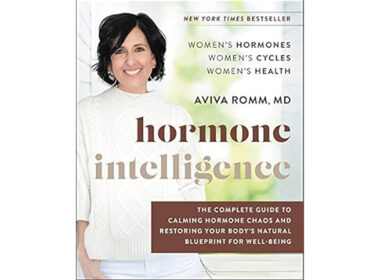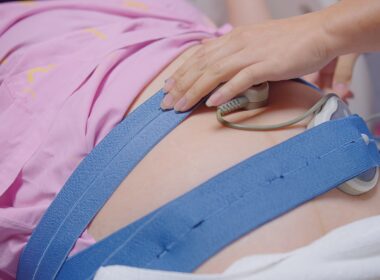Part 5 of a Natural Womanhood series on teen sex.
According to a 2017-2019 survey from the Centers for Disease Control and Prevention (CDC), around a quarter of girls aged 15-19 are on some form of hormonal birth control, and the vast majority are on the Pill. This number has increased over time, despite the fact that fewer teens are having sex (or getting pregnant) now than ever before. Many girls choose to take birth control for reasons other than preventing pregnancy, such as for painful and irregular periods or in order to take acne medication like Accutane. But what these young women don’t know could hurt them—teens may be at higher risk than adult women of experiencing birth control side effects.
What side effects come with hormonal birth control?
No matter her age, any woman might experience the following side effects from hormonal birth control:
- decreased libido
- skin rashes
- discoloration of the skin (melasma/chloasma)
- changes in weight or appetite
- nausea, vomiting
- migraines
- mood changes, including depression
- aggravation of varicose veins
- gastrointestinal symptoms (pain, cramps, bloating)
- spotting
- vaginitis or yeast infections
- vitamin deficiencies
- water retention
- vision impairment
- liver malfunction (jaundice)
Hormonal birth control deprives young women of the health benefits of ovulation
Certainly, for some women the Pill will just do what it’s supposed to—prevent pregnancy. But the worst thing about the Pill might be what it causes the body not to do for anyone who takes it. Because the Pill’s primary action is to block the hormone feedback loop that triggers ovulation, a woman on the Pill doesn’t ovulate (though breakthrough ovulation can occur, sometimes), which means she also doesn’t menstruate. Now, to some, that might sound like a good thing. But women actually need periods.
We need periods not only to help our bodies prepare for future pregnancy, but also to help various organ systems function correctly. Ovulation and menstruation are critical to help women build bone mass in the first 25 years of life. This means that taking birth control now, in your teen years, could actually hurt your bone health when you’re older and post-menopausal. Your heart and cardiovascular system also miss the important hormonal fluctuations that help them function well, and your immune system even loses out when you remove your menstrual cycle from your life. The Pill doesn’t just prevent pregnancy or help with your acne—it also disrupts the way your body is designed to function. And for growing teen girls, this can be especially problematic.
The Pill doesn’t just prevent pregnancy or help with your acne—it also disrupts the way your body is designed to function. And for growing teen girls, this can be especially problematic.
Birth control can cause devastating side effects for teen girls
Teens are particularly prone to mental health problems caused by their birth control. Birth control-induced blood clots are less likely to occur in otherwise healthy teens versus older women, but they are especially devastating—and can be fatal—for teen girls who should have their whole healthy lives ahead of them. Lastly, the longer a woman takes birth control, the higher her risk for both cervical and breast cancer. It only stands to reason that girls who start birth control as teens will ultimately have been on it longer than those who start taking it in adulthood.
Mental health problems
One of the most significant and well-documented risks for teens on birth control is the association between teenage birth control usage and adult-onset depression. Multiple studies have shown that adolescence is a “sensitive period during which [oral contraception] usage could increase women’s risk for depression, years after their first exposure” [1][2][3].
Negative mental health effects don’t just begin in adulthood, however. Researchers have also found that teen girls on birth control report more crying and issues with eating and sleeping than their peers who are not taking the Pill. Birth control likely impacts adolescent mental health because synthetic forms of the female hormones progesterone and estrogen impact the brain, especially the still-developing prefrontal cortex or “personality center” of the brain [4]. And the havoc wreaked by the Pill won’t necessarily go away when a young woman stops taking it.
Blood clots, which can be fatal
While older women are more likely to develop blood clots from birth control, taking hormonal birth control still raises a teen’s risk for blood clots above her pill-free peers’ risk. Numerous healthy teen girls, like Orlaith Clinton, have developed blood clots as a result of taking hormonal birth control. Eighteen year old Hannah Drummond experienced a stroke caused by a blood clot that traveled to her brain. Her doctors believe the clot was caused by her birth control.
In some cases, young women have lost their lives to birth control-induced blood clots. Hope Johnson. Alexandra WIlliams. Julia West-Ross. Erika Langhart. Brittany Malone. Alex Rowan. Each woman died from a blood clot caused by her birth control. According to a 2019 systematic review of literature on blood clot, stroke, and heart attack risk due to birth control in young women ages 15-24,“The risks found would project 300–400 women dying from using [hormonal contraception] each year in the United States.”
The C-word: cancer
Hormonal birth control also increases a teen girl’s future risk for cervical or breast cancer. Cervical cancer risk increases with duration of use. Young women who take birth control have a 10% increased risk for less than 5 years of use, and an astounding 60% increased risk for 5-9 years of use. Cervical cancer risk doubles for women who take hormonal birth control for more than 10 years.
Your risk of developing breast cancer also increases the younger that you begin birth control, especially if you’ve never been pregnant. This is because breast cancer mostly develops in less mature, cancer-vulnerable breast tissue that hasn’t yet prepared for lactation. This immature breast tissue has more progesterone and estrogen receptors than more mature tissue. These receptors multiply rapidly when exposed to the synthetic hormones in birth control, and this rapid multiplication can lead to mutations that lead to cancer. This is why women in their 20s taking birth control have nearly double the risk of breast cancer than women in their 30s [5]. That risk is even higher if you are in your teens when you start the Pill.
Teens and young women needn’t expose themselves to the side effects of birth control
Teen girls who take birth control aren’t just at risk of significant side effects. Women’s health nurse practitioner Teresa Kenney believes that birth control use deprives young women of key health data. She explains that a woman’s cycle is another vital sign, giving her insight into how her body is doing. “If you are a woman, you know that at some point in your reproductive life, you’re going to have some change in your menstrual cycle. Something is going to occur that makes you ask, ‘is this normal? Or is this not normal?’” she said in an interview with Natural Womanhood.
Kenney recommends young women learn to chart their cycles from an early age for health monitoring. This involves more than just recording when you start your period. Cycle charting could include tracking other bodily signs like cervical mucus or basal body temperature (BBT). If you’ve never heard of either of those terms before, we have many great starter resources here at Natural Womanhood. It might seem a little weird to be tracking these symptoms if you’re not sexually active or thinking about pregnancy yet, but this information is foundational to body literacy, and body literacy doesn’t require an engagement ring! Especially if you’re experiencing cycle irregularity or heavy and painful periods, understanding how and when your body moves through the cycle phases can give restorative reproductive medicine-trained healthcare providers clues as to the cause and where to start a diagnostic workup.
Should teens use fertility awareness for pregnancy prevention?
But what about the young women who take birth control for pregnancy prevention? While cycle charting can be used to avoid pregnancy, that’s not the goal for teen use as advocated by Kenney and others. As we cover in our teen sex series, research shows that teenage sexual activity has significant negative consequences, especially for teen girls. We do teens a deep disservice by not being honest with them about the risks of sex, and assuming they have little-to-no self-control and are simply “going to do it, anyway.”
For mothers of pre-teens and teenagers, Natural Womanhood also offers an online, parent-led, body literacy course to help women teach their daughters about their cycles in age-appropriate ways and help them feel at home in, not betrayed by, their own bodies. Though learning fertility awareness and cycle tracking might involve a little more effort and education than simply taking a Pill, young women gain body literacy that provides relationship and health benefits for years to come.
References:
[1]Skovlund CW, Mørch LS, Kessing LV, Lidegaard Ø. Association of Hormonal Contraception With Depression. JAMA Psychiatry. 2016;73(11):1154–1162. doi:10.1001/jamapsychiatry.2016.2387 [2] Anderl, Christine et al. “Association between adolescent oral contraceptive use and future major depressive disorder: a prospective cohort study.” Journal of child psychology and psychiatry, and allied disciplines vol. 63,3 (2022): 333-341. doi:10.1111/jcpp.13476 [3] Anderl, Christine et al. “Oral contraceptive use in adolescence predicts lasting vulnerability to depression in adulthood.” Journal of child psychology and psychiatry, and allied disciplines vol. 61,2 (2020): 148-156. doi:10.1111/jcpp.13115 [4] Hathaway WR, Newton BW. Neuroanatomy, Prefrontal Cortex. [Updated 2023 May 29]. In: StatPearls [Internet]. Treasure Island (FL): StatPearls Publishing; 2023 Jan-. Available from: https://www.ncbi.nlm.nih.gov/books/NBK499919/ [5] Bjelic-Radisic, V., Petru, E. Hormonelle Kontrazeption und Brustkrebsrisiko. Wien Med Wochenschr 160, 483–486 (2010). https://doi.org/10.1007/s10354-010-0807-0Additional Reading:







